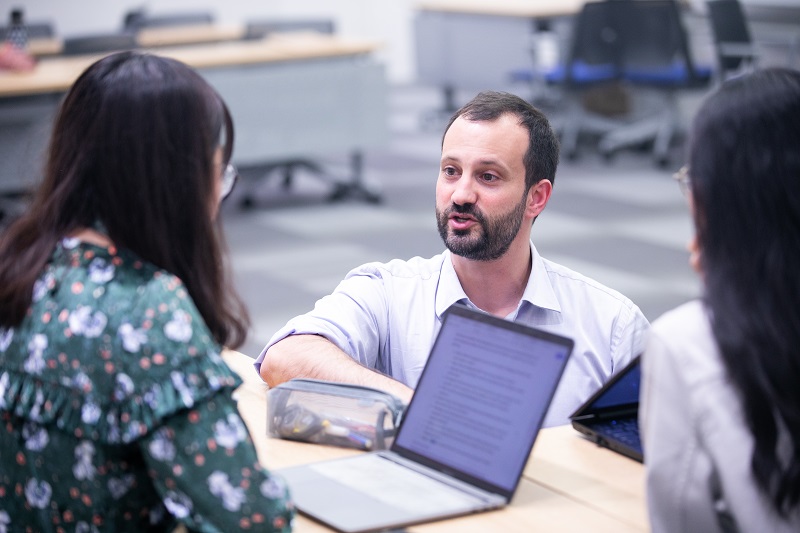
As children, we all play games. It’s actually how we learn. So why stop at college?
In the spring 2019 semester, Zach Fredman, assistant professor of history at Duke Kunshan, introduced a role-playing game (RPG) in his Methods of Historical Research class to help students better understand the complex dynamics and diplomacy at the Yalta conference.
Held in 1945, the conference brought together the leaders of the United States, Great Britain and the Soviet Union in the Crimean Peninsula to discuss the impending end of World War II and the reorganization of postwar Europe.
Methods of Historical Research aimed to develop students’ historical thinking skills by exploring how historians construct their narratives and by examining history’s usefulness as a way of thinking critically about the relationship between past and present, according to Fredman, whose research focuses on U.S.-China relations and WWII.
The course, which Fredman designed in order to implement some of the innovating teaching ideas discussed at events led by the Center for Teaching and Learning, was aimed at students thinking about a disciplinary focus in history, but it was open to anyone with an interest. The spring class had seven students.
Over seven weeks, the class read and analyzed foundational primary and secondary sources, and wrote analytical papers based on the life of former Chinese leader Chiang Kai-shek. To help his students craft persuasive arguments and engaging historical narratives, Fredman also introduced the ‘Yalta, 1945’ RPG.
The game was developed by the Reacting Consortium, an alliance of colleges, universities and individual educators that devises RPGs for higher education. In the game, players take the roles of real historical actors. By giving them certain freedom in decision-making, they can observe the alternative behaviors and decisions as well as their consequences.
‘I like using RPGs because they simulate real events and the corresponding historical context,’ Fredman said. ‘They offer the opportunity for students to experience the long-term effects of various decisions and discuss the optimal use of limited resources.’
The students were informed about the RPG at the first class session. After getting to know their strengths and weaknesses over the next several meetings, Fredman assigned them roles and organized a model conference, with three students representing the U.S., two for the Soviet Union and two for Great Britain.
‘We spent one week preparing. Each team was provided with the same source list, which I compiled, as well as with secret documents or a special power. Then, over the next two sessions, we held a model conference,’ he said. ‘Students also had the opportunity to negotiate and resolve problems on their own in between these sessions.
‘The group was able to role-play as fascinating and important historical figures, such as Josef Stalin, Winston Churchill and Franklin D. Roosevelt. Playing these characters required extensive reading of speeches, meeting notes and memoirs ‘ but the challenge and excitement of the RPG meant this hard work passed quickly.’
As part of the game, students had to prepare one formal speech and two shorter ones, and they were scored both as a team and individually. The rubric had sub-categories such as team victory, individual victory, formal speech, primary source presentation, gameplay and resolution of issues.
Gamification in the learning process, an important part of Duke Kunshan’s innovative curriculum, not only motivates students to actively engage, but also brings activities more in line with the objectives and social conditions students are likely to experience in future professional settings, according to a 2015 study.
The study concluded that role-play improves a student’s education quality, including their motivation maturity, proficiency, and ability to set and achieve goals. In addition, RPG participants are often inspired to learn how to research in specific areas of knowledge.
‘My students responded positively to ‘Yalta, 1945,’ saying it was exciting and a mind-opening way to learn international history,’ Fredman said. ‘Like any good inquiry approach, the RPG transformed the educational content from information into experience, and it allowed the class to look at the material in a new light.
‘Students also improved their skills in teamwork, negotiation and problem-solving.’

